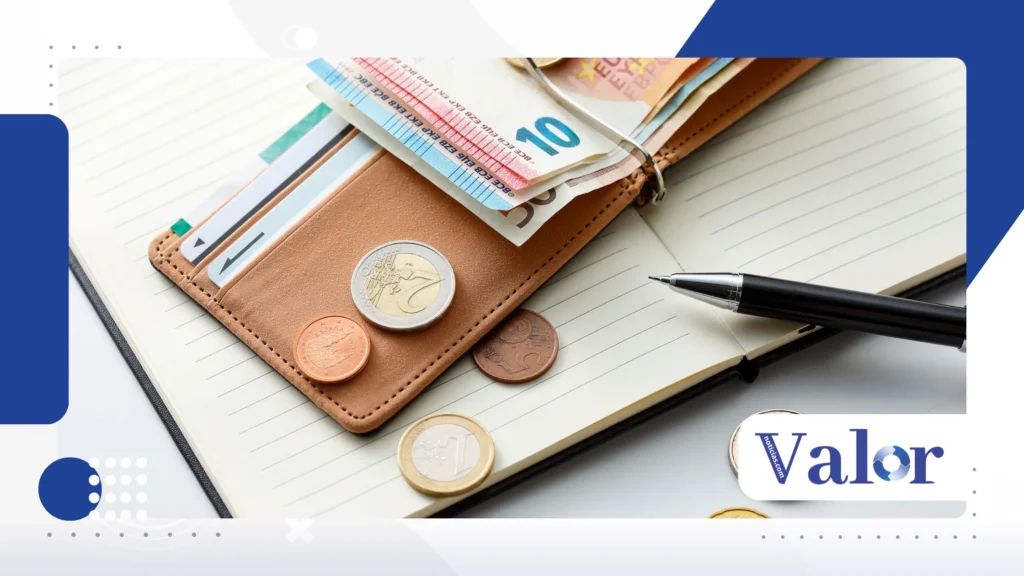How to live well while spending less: practical tips for conscious consumption

Live well while spending less It is the desire of many people in the current economic reality, seeking a healthy balance between finances and quality of life.
Advertisements
This article explores smart, current strategies for optimizing your budget, adopting conscious consumption as a tool for transformation.
We'll cover how to restructure your spending, the benefits of financial minimalism, and planning methods.
Plus, you'll find important references and real data to support your journey. Get ready to discover how small changes can have a big impact on your well-being.
What is conscious consumption really and how does it impact your financial life?
Conscious consumption means actively reflecting on the impact of your purchasing choices before making them.
It goes far beyond simply saving money; it's about aligning your spending with your real values.
You consider the need, the origin of the product, and its social and environmental consequences in every decision.
Adopting this philosophy is crucial to achieving live well spending less and build solid financial health.
After all, why continue buying items that bring momentary satisfaction but generate financial regret later?
Thoughtless consumption is a vicious cycle that compromises your future and your present peace of mind. Changing this mindset is the first step toward taking full control of your money.
This new perspective on your own consumption is an invaluable investment in your overall well-being.
+ Vehicle consortia: is it worth waiting or financing?
Why financial planning is essential for those looking to live well spending less?
Detailed financial planning is the roadmap to achieving the desired freedom of live well spending less.
It lets you see exactly where your money is going across all spending categories.
Without this clear and constant monitoring, it is impossible to identify the so-called “drains” in the monthly budget.
You need to transform your relationship with finances from reactive to proactive by setting clear and measurable goals.
By setting priorities, it becomes much easier to say “no” to unnecessary expenses that seem harmless but add up.
This organization does not mean deprivation, but rather directing your resources towards what truly matters in your life.
+ Can you talk about economics with children? Yes, and here's how.
What are the essential pillars of financial minimalism for a lighter life?
Financial minimalism is the practical application of the “less is more” philosophy in managing your money.
He suggests that you prioritize experience and purpose over the accumulation of material possessions.
You focus on buying the essentials and investing in assets that truly add lasting value to your daily life.
A fundamental principle is reducing debt, eliminating the installments and interest that imprison your income.
Free yourself from the pressure of following imposed consumption patterns by focusing only on what is sustainable for you.
This approach brings an incredible sense of lightness, allowing you to enjoy life more with fewer financial worries.
Read also: Controlling spending on eating out: practical alternatives
How does the 50/30/20 rule help with organizing your monthly budget?

The 50/30/20 rule is a simple and effective method for structuring your budget in a balanced way.
She suggests that 50% of your income go towards basic needs, such as housing, food, and transportation.
The next 30% are directed towards non-essential desires and expenses, such as leisure, hobbies and clothing purchases.
Finally, the remaining 20% of your salary should be dedicated to your future financial health: savings, investments, and paying off debt.
Applying this ratio helps maintain transparent control over your spending, avoiding budget imbalances.
It's a financial compass that guides your journey to live well spending less without great sacrifices.
| Budget Category | Suggested Income Ratio | Examples of Expenses |
| Needs (Essentials) | 50% | Rent/Financing, Utility Bills, Supermarket, Transportation, Healthcare |
| Desires (Non-Essential) | 30% | Leisure, Streaming, Dining Out, Travel, Clothing, Electronics |
| Savings and Debts | 20% | Emergency Fund, Investments (Goals), Debt Repayment |
Table 1: Structure of the 50/30/20 Budget Rule.
How can I reduce my food expenses without losing quality of life?
Food represents one of the largest expenses in the Brazilian budget, but it is an area with vast potential for smart savings.
Planning your weekly menu and cooking more at home drastically reduces restaurant spending and delivery expensive.
Always make a well-organized shopping list and never go to the supermarket hungry, avoiding unnecessary impulse purchases.
Prioritize seasonal ingredients and research prices at different establishments, such as farmers markets and local wholesalers.
A valuable tip is to learn how to make the most of your food, minimizing waste that affects your wallet and the environment.
In addition to saving money, you ensure healthier and more nutritious meals for you and your family every day.
Instead of asking for four deliveries per week, which cost R$ 200, the Silva family planned their meals and reduced it to just one delivery and three lunch boxes taken to work.
This change generated a monthly saving of approximately R$1,400,000, an amount that is now fully invested.
Why is it essential to reevaluate and negotiate essential services and fixed bills?
We often pay fixed bills out of sheer inertia, like cell phone or cable TV plans that we don't fully utilize.
Take some time to review all your services and monthly subscriptions, identifying what can be canceled or reduced.
Negotiating with service providers is a powerful, often underestimated, cost-saving tool.
Call your carriers and ask about more affordable plans or promotions available to existing customers.
Swapping an expensive postpaid phone plan for a prepaid or digital one can mean significant savings at the end of the month.
Switching to digital banking, for example, can eliminate unnecessary account maintenance and other service fees.
How emergency fund and debt repayment relate to live well spending less?
It's not about cutting costs on everything, but rather about ensuring peace of mind in the future so you can live well spending less in the present.
An emergency fund is your financial shield, an amount saved to cover unexpected expenses, preventing debt.
It is recommended that this amount be equivalent to three to six months of your fixed expenses.
Meanwhile, the top priority should be paying off high-interest debts, such as credit card and overdraft debts.
Statistics from Serasa (Brazilian credit bureau) in October 2024 showed that more than 73 million Brazilians were in default, highlighting the burden of debt. Negotiate actively with creditors to secure advantageous discounts and reduced interest rates.
THE indebtedness with high interest it's like a container of metal that you drag through life, with each credit purchase adding an extra kilo.
The emergency backup is the winch that, if necessary, pulls you out of the mud without the extra weight.
What consumption habits can be transformed to boost savings?
Replacing new with used is a habit that boosts the circular economy and your household budget.
Think of thrift store clothing, used furniture, or even refurbished electronics that offer excellent value.
This practice not only saves money, but also directly contributes to reducing negative environmental impact.
Another important transformation is adopting the “repair before replace” principle when it comes to home appliances and electronics.
Avoid the throwaway mentality by extending the life of your belongings with minor repairs.
You need to ask yourself: is purchasing a new item really essential or just a desire induced by marketing?
To deepen your understanding of financial choices and their impacts, you can consult the official material from the Central Bank, which offers guides on personal finance and planned consumption.
[Access the Central Bank's Financial Education Notebook].
Why emotional control is a key factor in live well spending less?
Many impulse purchases are motivated by emotional factors, such as stress, anxiety, or the search for instant gratification.
Recognizing these emotional triggers is crucial to avoiding unnecessary spending that sabotages your financial planning.
Before buying, adopt the waiting rule: wait 24 to 48 hours to see if the desire really persists.
Consider shopping as a solution to a problem, not a way to fill an emotional void.
Ask yourself: “Will this object bring lasting happiness or just momentary relief?”
The real one live well spending less involves internal satisfaction, which cannot be bought in any store.
In one example, Clara used to buy new clothes every time she felt stressed at work.
She replaced this habit with walking in the park and reading, finding that the emotional relief was the same, but her bank account was grateful for the change.
Now, she uses the money she saved to take an annual trip.
What is the role of technology and applications in modern financial management?
Today's technology offers powerful tools that simplify the efficient management of your personal finances.
Expense tracking apps help you record and categorize all your transactions in real time.
Many of them generate detailed reports, allowing you to quickly identify where you're overspending.
Payment automation and investment scheduling ensure you prioritize savings over monthly expenses.
Also use price comparators online before any significant purchase to ensure you get the best deal.
Technology is your ally in maintaining control without the need for complex spreadsheets, making the process easier.
Conclusion: the transformation to conscious consumption is in your hands
The path to live well spending less It is not a temporary sacrifice, but an intelligent and lasting restructuring of your lifestyle.
By embracing conscious consumption, you not only improve your finances, but also gain more time, peace of mind, and purpose.
Small habit changes, done consistently, lead to remarkable and sustainable transformation.
You can have quality of life, well-being and financial security without the need for an exorbitant budget.
Take full control of your choices now and build the prosperous future you deserve.
For more tips and a deeper understanding of the importance of conscious consumption, visit the Akatu Institute, a leading figure on the topic in Brazil. [Learn more about Conscious Consumption at Akatu].
Frequently Asked Questions about Live Well Spending Less
What does prioritizing spending mean in practice?
Prioritizing spending means allocating your money first to essentials and your long-term goals. In practice, you pay your fixed expenses and set aside some savings before spending on leisure or secondary desires.
It is possible live well spending less with a low income?
Yes, it's entirely possible; the key lies in rigorous planning and creativity to cut non-essential expenses. The focus should be on maximizing the efficiency of every dollar, taking advantage of free resources and negotiating everything possible.
How to deal with social pressure to consume more?
Dealing with social pressure starts by recognizing your own values and financial goals above the expectations of others. You don't need to justify your choices; the focus is on your peace of mind and long-term financial health.
Should I stop buying everything that gives me pleasure?
No, the idea isn't total deprivation, but rather intentional, non-excessive consumption, aligned with your budget and goals. You should choose to enjoy what truly brings you pleasure, within the limits established in the "Wants" category of your plan.
What is the conscious consumption test?
THE conscious consumption test It's a question you ask yourself before purchasing any item to understand your true need. Ask yourself: "Do I need this? Do I have something similar? Can I borrow it? Will it add lasting value?"
